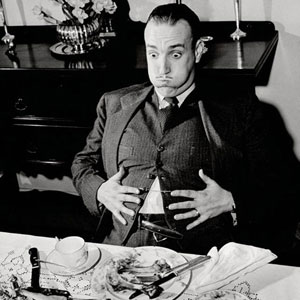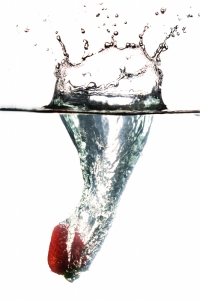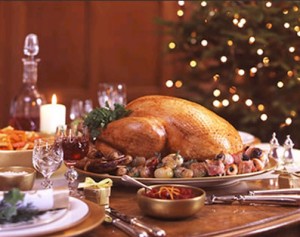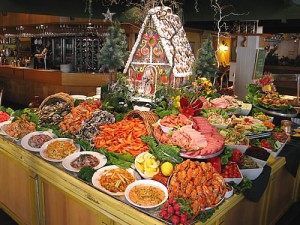Welcome Back!!
I hope that you all had a great Christmas day and that Santa brought you what you wanted!!
I hope that you spent good times with family and friends. That the food was good & plentiful, the company enjoyable and the weather good…
Well Christmas lunch has come & gone and dinner is over, done and dusted. And you’re feeling….well stuffed, over fed, pants too tight, got a good case of belly bloat going on and that furry tongue feeling that comes from either too much alcohol. too many sweet carbs or a mixture of both. (in my case Lynne – as she always does – cooked up a superb all day feast that began with Christmas Brunch and continued all day…)
You know you should have followed the last post and eaten your Protein first but the honeyed veges looked too good, the egg nog was too plentiful, the christmas cake too inviting and well you just let go and enjoyed yourself. You let go of all of that hard won disciplne, that laser like focus on only eating to stay healthy & lean… Another Christmas day come & gone and you feel a bit guilty, like you blew it and find part of your mind saying (again) never again..
Okay time to move past this, time to get back on track, time to recognise that this was a temporary diversion and most of all time to repair some of the damage done.
So how to do this?
Firstly realise that letting go of your diet control once & a while is okay, just make sure that you climb back on the wagon. It’s really not something to beat yourself up about unless ‘once & a while’ turns into every week or….
Here’s how to get back in harness– your metabolism has been given a hiding, and your digestive system has been stressed far beyond normal limits… You need to hit the ‘reset button’.
This little trick will do what’s needed:
Once Christmas day and the following one (Boxing Day here in Australia) are done then make a decision to stay away from all highly processed, high GI foods and focus on lean Protein, fresh fruit and fibrous vegetables. Add some healthy fats via nuts & avocado and you are well on the way to getting back on track.
This means waking up and having an omelette with some Spanish onion and mushrooms in it and avoiding cereal & milk. It means grabbing an apple or a peach and some almonds for a snack, having big salads with
olive oil dressing and chicken or turkey breast, it means avoiding breads, crackers or that the left over Christmas pudding, Pavlova or pie.
It means drinking a lot of water. A lot of water.
Eating like this will reduce the bloat, ease the stress on your digestive system and beat back those sugary carb cravings.
This works by allowing a number of things to happen – fewer carbs means your body has a chance to normalise & stabilise blood sugar levels after the havoc of the days just gone.
Your pancreas gets a break and you insulin levels will drop also. Your body will release excess fluids (high sugary carbs creates water retention – and drinking extra water when eating lower carbs actually forces a situation where excess retained water is ‘let go’).
High sugary carbs also unleash the cravings monster and eating as described above will blunt these.
So December 27th or 28th get stuck into water and left over protein, veges and fruit. Pass on the potatoes, the bread and sweets, pie & cakes. Not only will you lose the bloat but you’ll feel better quicker and be back on track for a fit & lean 2011.
Oh yeah add some gentle exercise – go for a walk, toss a Frisbee, ride a bike do some tai chi or or some swimming. The key here is to eas back into exercise not jump back in like a demon! There are some
psychological considerations for this time of year to take into account as well. Our mind tells us we should be taking it easy, we should be on holidays so our bodies are going this way as well. Don’t stop exercising just ease back into instead…
My best wishes for a Safe & Happy New Year – may 2012 be the year all your dreams come true!!







